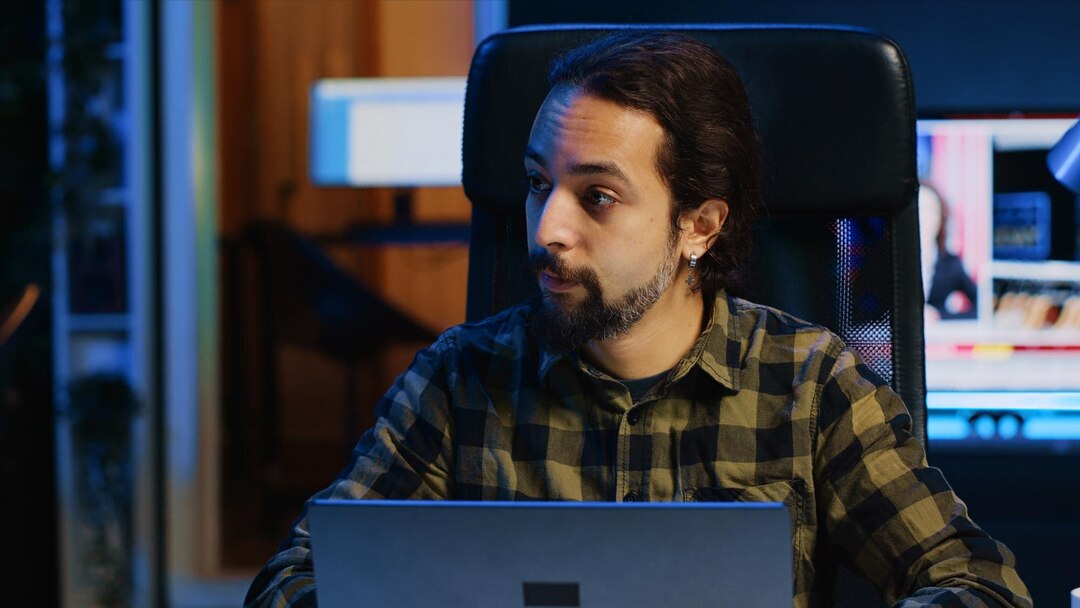What Are The Key Differences between Bitbucket and GitHub?
Bitbucket and GitHub cater to different user preferences and project requirements. Both platforms support Git versioncontrol. But, they offer different experiences. One of the primary differences is in repository management. Bitbucket provides support for both Git and Mercurial repositories. This appeals to teams used to either system. GitHub is only focused on Git. Collaboration features also set them apart. Bitbucket emphasizes teamworkflows with its Jira integration for issue tracking. GitHub has a lively community for sharing code and socializing. The UI can influence your choice, too. Bitbucket has a more structuredlayout. Some find it easier for navigating complex projects. In contrast, many users like GitHubs clean design. It shows contributions and activity streams well. Both platforms are popular repository hosting services that cater to different preferences and workflows. Each platform has strengths tailored for specific development environments.How do Bitbucket and GitHub compare in terms of pricing?
Bit bucket and GitHub have different pricing models. They cater to different users. Bitbucket has a free tier for small-teams of up to five users. This makes it great for beginners and startups. Paid plans scale based on the number of users, which can be helpful as your team grows. GitHubs free plan allows unlimited public repos.
| Feature | Bitbucket | GitHub |
|---|---|---|
| Free Plan | Up to 5 users, unlimited private repos | Unlimited public & private repos, free for all users |
| Paid Plan (Standard) | $3/user/month (unlimited users, premium support) | $4/user/month (includes advanced collaboration) |
| Premium Plan | $6/user/month (additional security & controls) | $12/user/month (includes SAML SSO, code scanning) |
| CI/CD Minutes | 50 minutes (free), with paid options available | 2,000 minutes (free for private repos) |
| Storage | 1 GB per repository | 500 MB per repository, with paid upgrades |
| Best for Small-Teams | Small-teams already using Atlassian-products | Teams prioritizing community and GitHub ecosystem |
What are the main features that distinguish Bitbucket from GitHub?
Bitbucket and GitHub each bring their own flair to the table. Bitbucket shines with its built-in support for both Git and Mercurial repositories. This dual compatibility can greatly benefit teams using different version control systems. A great feature of Bitbucket is its perfect integration with Atlassian tools, like Jira and Trello. This streamlines project-management. It lets developers track issues with code changes. GitHub provides a vibrant community and a vast ecosystem of third-party apps in its Marketplace, offering developers even more flexibility and customization options for their workflows. GitHubs social coding aspect fosters collaboration. It does this via Gists and a strong community around open-source projects. Its vast ecosystem encourages contributions from developers worldwide, amplifying innovation. Also, Bitbucket has strong branch permissions. They are ideal for secure, enterprise environments. They provide granular access controls. Both platforms offer unlimited public and private repositories, making them suitable for diverse project types and team sizes. Each platform has unique strengths tailored to varying developer needs.How do Bitbucket and GitHub differ in terms of integration capabilities?
Bit bucket and GitHub both have strong integration-options. But, they serve different user needs. Bitbucket is designed with Atlassianssuite in mind. This makes it seamless for teams using tools like Jira, Trello, or Confluence. You can easily link issues and track project progress without leaving the platform.
GitHub has a vast ecosystem of third-party apps in its Marketplace. This library lets developers improve their workflows. They can integrate CI/CD tools, code quality checks, and more. Bitbucket is great for team collaboration in the Atlassian ecosystem. GitHub is more flexible for different development setups, even offering integration with Azure cloud services for streamlined deployment and management.
Both platforms support webhooks and APIs. They appeal to different audiences due to their existing toolchains. Your choice may hinge on your teams priorities.
Which Platform Offers Better Support for Private Repositories?
Bitbucket shines when it comes to private repositories. The platform offers unlimited free private repos for small group of five users. Theyre free. This is a big plus for startups and hobby projects. They want to keep their code secure while minimizing costs. GitHub also caters to those needing privacy but has its own limitations. GitHub offers unlimited private repositories. But, lower-tier plans limit some features based on user count. Larger teams may need paid upgrades sooner than on Bitbucket. Both platforms maintain robust security measures like branch restrictions and access controls. But, Bitbuckets tight integration with Atlassian tools attracts those using Jira or Confluence. It improves collaboration in many areas of development management.

How many free private repositories do Bitbucket and GitHub offer?
For free-private repositories, Bitbucket stands out. It offers a lot. Users can create unlimited private repositories with up to five users for free. This flexibility appeals to teams and solo developers. They want a seamless coding experience with no upfront costs. However, GitHub pricing structure might be more appealing for larger teams and organizations as it offers a tiered pricing system with features like GitHub Actions and more generous storage limits, making it a viable option for scaling up development efforts. 1. Unlimited private repositories: GitHub allows teams to store their code securely and privately, preventing unauthorized access. 2. Unlimited collaborators: Teams can invite as many individuals as needed to work on the project, facilitating collaboration and knowledge sharing. 3. Collaboration-focused features: Git-Hub offers various tools designed to streamline collaboration, such as issue tracking, pull-requests, and code review features. Both platforms meet different needs. They give programmers a choice. They can pick the one that fits their projects needs and team size. For instance, Bitbucket Cloud is a popular choice for small to medium-sized teams, offering a free tier with private repositories, while Git-Hub offers a free tier with public repositories. Each platforms approach has unique benefits. They depend on your vision for your development workflow.What are the limitations of private repository hosting on each platform?
Bitbucket and Git Hub both offer privaterepos. But, they have some limits. On Bitbucket, free plans limit the number of collaborators. Users can invite a team of up to five members to their private repositories, unless they pay for a plan. This restriction may hinder larger teams looking for flexible collaboration.
GitHubs free tier allows unlimited collaborators on public projects. Users can only use this feature if the projects are public. But, free plan users face a 500MBlimit on private repositories. For growing projects that generate extensive data, this could pose challenges. Both plates restrict CI/CD usage in their free versions. These limits can affect teams workflows and development in private repos.
How Do Bitbucket and GitHub Compare for Enterprise-level Development?
When it comes to enterprise-level development, Bitbucket and Git Hub each offer distinct advantages. Bitbucket shines with its seamless incorporation into the Atlassian ecosystem. This is especially helpful for teams using Jira or Confluence. It boosts project tracking and streamlines workflows. GitHub has built a robust reputation among programmers globally. Its extensive community fosters collaboration and knowledge sharing. For many enterprises, tapping into this vibrant network can speed up innovation. Security features also vary between the two plates.
Bitbucket allows detailed permission settings. They suit large organizations with sensitive projects. Meanwhile, GitHubs security tools focus on vulnerability detection within dependencies. Both platforms have strong support for CI/CD pipelines. Bitbucket pipelines are particularly well-regarded for their intuitive interface and seamless integration with other Atlassian tools. They are essential for todays fast-paced development. It often comes down to specific needs. These are due to existing tools or team dynamics. Its not about one being better than the other.
What features does GitHub Enterprise offer compared to Bitbucket?
GitHub-Enterprise boasts a robust suite of features tailored for large organizations. It allows teams to host their own instances. This boosts security and compliance. This is vital for businesses handling sensitive data. The plate advanced access controls enable administrators to define user permissions meticulously. This ensures that only authorized personnel can access specific repositories or features.
GitHub-Enterprise also offers powerful analytics tools. They provide insights into repository activity and team work.These metrics help organizations optimize their workflows effectively. Collaboration is seamless with our issue-tracking and project boards. They are designed for enterprises.
Git Hub Actions also streamlines CI/CD processes, making deployment easier than ever before. Bitbucket has some enterprise features. But, it lacks GitHubs unified incorporations. For companies that value flexibility and third-party support, GitHub is a top choice.
How does Bitbucket integrate with other Atlassian products for enterprise users?
Bitbucket works perfectly with other Atlassian-products. So, its a great choice for firms using the Atlassian ecosystem. This close bond lets teams use tools like Jira and Confluence easily. With Jira incorporation, programmers can link commits and branches directly to issues. This link boosts visibility for project managers.
They can now track progress in real-time.It creates a streamlined workflow where development tasks align perfectly with project-management. Confluence works hand-in-hand with Bitbucket as well. Teams can document their codebase and processes in Confluence pages.
They can link to relevant Bitbucket repositories. This collaboration fosters transparency and keeps everyone on the same page. Also, automation features let teams create custom workflows across plates. This boosts efficiency. By unifying various tools, enterprises can improve communication and productivity. This will help them in their development cycle. Best code llm is a valuable tool for programmers, but it is important to remember that it is not a replacement for human expertise. Programmers still need to understand the underlying principles of coding, the specific requirements of the project, and how to best utilize the generated code.Which Platform Provides better Collaboration Tools for Development Teams?
Both Bitbucket and Git-Hub offer strong collaboration tools for dev teams. They are tailored for development work. GitHub shines with its intuitive interface. Its pull-requests and code reviews enable quick feedback. Its social coding aspect encourages community engagement through comments and discussions on issues. Bitbucket integrates seamlessly with Atlassian products like Jira and Trello. It improves project tracking. It lets teams manage tasks linked to their repos. For developers who value real-time collaboration, GitHubs Live Share feature is the best. It lets many users work together in a single session. Meanwhile, Bitbuckets branching strategy simplifies simultaneous contributions without conflicts. Both plates foster teamwork but cater to different workflows. So, choosing the best tool depends on your teams needs and systems.

How do code review processes difference between Github and Bitbucket?
GitHub and Bitbucket have very different code-review processes. They reflect each plate unique approach to collaboration. On GitHub, the code-review is primarily facilitated through pull-requests.
After a developer creates a pull-request, team members can comment on specific lines of code. This promotes discussions and quick feedback before merging changes into the main branch. In contrast, Bitbucket uses pull-requests. It emphasizes Jira for issue tracking.
Bitbucket offers built-in support for in-line commenting. It improves team workflows. Reviewers can approve or reject changes from the interface. Both plates have strong peer review tools. They cater to different needs based on how teams manage their development process.
What project management features are available on each platform?
Bitbucket offers integrated project management tools that cater to agile teams. It has features like issue tracking. It lets programmers manage tasks with their code repositories. The Kanban boards help visualize workflow. They make it easier for teams to stay organized. GitHub has great project management-tools. They support task assignments and progress tracking via GitHub Projects.
Teams can create boards with cards for issues or pull requests. The cards are customizable. This enables seamless collaboration. Both platforms support milestones for tracking project timelines and deliverables. But, GitHubs extensive incorporation options with third-party tools enhance its functionalities further. In contrast, Bitbucket supports git and Mercurial repositories, making it a suitable option for teams using both version control systems. This dual compatibility might be a deciding factor for some organizations. Which you prefer, Bitbucket or GitHub, depends on your team. Bitbucket has great Jira incorporation. GitHub is very customizable, including features like Github pages for hosting static websites directly from your repository. Each platform has unique strengths in managing projects effectively within a development environment.How Do Bitbucket and GitHub Handle Version Control and Git Repositories?
Bitbucket and Git Hub both leverage Git as their underlying version control system. It lets programmers track changes, branch for new features, and merge updates. On Bitbucket, users enjoy built-in pull request workflows. These help maintain code quality through reviews before merging into the main branch. Its interface highlights commit history clearly. GitHub shines with its intuitive user experience and seamless collaboration tools. The plates makes it easy to use branching strategies like Git Flow. This encourages teams to follow good development practices. Both plates support public code and private-repositories. They let users easily clone them for local work. While they share core Git functions, each adds unique features. They cater to different teams and project needs in managing repositories.
Are there any differences in Git functionality between the two platforms?
Git works on the same principles in both Bitbucket and Git-Hub. But, nuances in their implementations do exist. For instance, both platforms support branching and merging seamlessly. Yet, how they visualize this process can differ significantly. Bitbucket may have a simpler interface for navigating branches and merges, while GitHub's interface might be more feature-rich and complex, catering to different userpreferences and experiencelevels.- GitHub:
- Bitbucket:
How do pull requests work on Bitbucket compared to GitHub?
Pull requests are key to collaboration in Bitbucket and Git-Hub. But, their workflowsdiffer. On GitHub, creating a pull request is straightforward. Programmers fork the repository. They make changes in their branch. Then, they start a pull request from that branch to the main one.
Reviewers can comment on specific lines of code or on the changes. This makes it easy to discuss them. Bitbucket is similar but focuses on integrating with Jira. It tracks issues alongside code changes. When you create a pull request, you can link it to Jira tickets. This will improve visibility on task progress. While both platforms-offer robust code review features, they cater to different needs and workflows. Bitbucket's incorporation with Jira is particularly beneficial for teams using Atlassian-project management tools. Meanwhile, GitHub's open-source community and vast ecosystem of tools make it a popular choice for many developers. The rise of github competitors like GitLab has expanded the options available to developers, with each platform-offering unique strengths and features.Both plates allow comments and approvals before merging. GitHub has features like auto review requests based on team settings. Bitbucket is for larger teams with many projects. It focuses on branching strategies.
What Are The Pros and Cons of Using Bitbucket vs GitHub for Small Teams?
Bitbucket is a good choice for lil teams, especially if they use Atlassian-tools. Its seamless incorporation with products like Jira can streamline workflows. Also, Bitbuckets free-plan allows unlimited private-repositories. This is a big plus for smaller projects. But, GitHub shines in community engagement and visibility. The plate boasts a vast user base that encourages networking and collaboration opportunities. Small groups can enjoy this ecosystem by finding resources or contributors easily. On the downside, Bitbuckets interface is functional. But, it may not feel as intuitive to new users as GitHubs sleek design. GitHub has more third-party incorporations in its Marketplace. It gives programmers more options to customize their environment. Each plate has unique strengths. They cater to different team dynamics and project needs.
Which platform offers better features for small team collaboration?
For small group work, GitHub shines. It has a great UI and strongcommunity support. The plate simple pull request system fosters team code reviews and discussions. Bitbucket, has unique features. It allows inline commenting within the code itself. This can streamline talks about specific lines or changes. It will make it easier to address concerns in real-time.
| Platform | Strengths for Small Teams | Limitations | Best for Small Groups Needing... |
|---|---|---|---|
| Bitbucket | Great for Git-based code management, Atlassian-ecosystem integration, free for small groups | Limited project management-tools | Code version control and integration with Jira/Confluence |
| GitHub | Strong community, excellent code review tools, GitHub Actions for CI/CD | Higher cost for private repos | Collaboration with an extensive community, automation |
| GitLab | Built-in CI/CD, robust DevOps tools, free self-hosting option | Can be complex for beginners | Integrated DevOps pipelines and code hosting |
| Slack | Real-time messaging, powerful integrations, simple setup | Limited to messaging, file sharing | Quick communication, integrations with other tools |
| Trello | Simple task management, visual boards, easy setup | Lacks advanced project management | Organizing tasks visually, minimalistic project management |
| Asana | Task tracking, timelines, dashboards | Limited free-tier features | Project planning, progress tracking with a small group |
GitHubs incorporation with tools like Slackboostscommunication. It sends notifications of repo activity to relevant channels. Bitbucket also integrates well with Jira and Trello for project management needs. Both plates have strong branching strategies. They let teams work together without conflicts. GitHub may excel in community engagement. But,Bitbucket is better for focused discussions in smaller groups. Each has strengths tailored to different workflows and preferences.
How do the free plans compare for small development projects?
For small projects, both Bitbucket and Git-Hub offer good free-plans. Bitbuckets free tier offers unlimited private repos for up to five users. This feature is appealing for small groups looking to collaborate without financialconstraints. The interface is user-friendly, making it easy for newcomers to grasp.
GitHub allows unlimited public repositories. But, it limits private ones unless youre on a paid plan. You can have three collaborators per private repo under the free-plan. This may affect your choice. It depends on your projects need for secrecy versus open-source visibility. Both plates have essential tools for newprogrammers. They aim to improve codingskills and manage projects within a budget.
How Do Bitbucket and GitHub Compare in Terms of Community and Ecosystem?
When it comes to community and ecosystem, GitHub stands out with its vast user base. This plate boasts millions of programmers who contribute to countless open-source projects. The vibrant community creates a rich environment for collaboration, learning, and networking. Bitbucket has a smaller but equally dedicated group of users. It is for teams using Atlassian-products like Jira and Confluence. It fosters incorporation within that ecosystem. This can create specialized support for specific workflows. GitHubs Marketplace offers many apps and tools that extend its features. They benefit programmers seeking diverse incorporations. In contrast, Bitbucket focuses on easy use with other Atlassian tools. This can help existing users manage projects better. Both plates host forums where programmers share knowledge and troubleshoot issues. But, GitHubs size tends to spark more live debates about coding practices.
What advantages does GitHubs larger user base offer to developers?
GitHubs extensive userbase provides a vibrant community for programmers. This large pool of users means more opportunities for collaboration and networking. Programmers can easily find collaborators who share similar interests or expertise. With so many users, GitHub also benefits from a wealth of open source code.
Being part of such a vast ecosystem increases visibility for individual projects. A well-documented repo can gain traction faster. Many eyes on it can lead to feedback, contributions, and job offers in tech. Express vs django is a common debate among developers. Express.js is a lightweight framework known for its speed and flexibility, while Django is a full-stack framework with a focus on scalability and security. Choosing the right framework depends on the specific requirements of the project.These projects let programmers learn from others code and improve it. It fosters a culture of knowledge sharing thats hard to replicate elsewhere. Many third-party tools now integrate with GitHub due to its popularity. These resources enhance productivity and streamline development workflows.
How does the GitHub Marketplace compare to Bitbuckets app integrations?
For third-party integrations, GitHub Marketplace is the best. It has a vast array of apps to boost productivity and streamline workflows. Programmers can find tools for CI, project-management. They can also find testing tools and more. The marketplace is user-friendly. To compare Bitbucket and GitHub in this area, Bitbucket also offers integrations, but the selection might be smaller than GitHub Marketplace, making it less diverse. They can now track progress in real-time. It creates a streamlined workflow where development tasks align perfectly with project-management. Confluence works hand-in-hand with Bitbucket as well. Software development teams can document their codebase and processes in Confluence pages. Alternatively, some teams might use GitHub for development and leverage its integration with other project-management-tools like Jira or Trello for a similar streamlined workflow.Both plates have strong capabilities through their ecosystems. But,GitHubs larger community means more app diversity in its marketplace. For programmers wanting a wide range of tools, GitHub may have the edge. It may also have niche functions to optimize their workflow. Choose between Bitbucket and Git-Hub based on your teams needs. See how each plate meets those needs. Both options have unique strengths. They suit different development projects.

